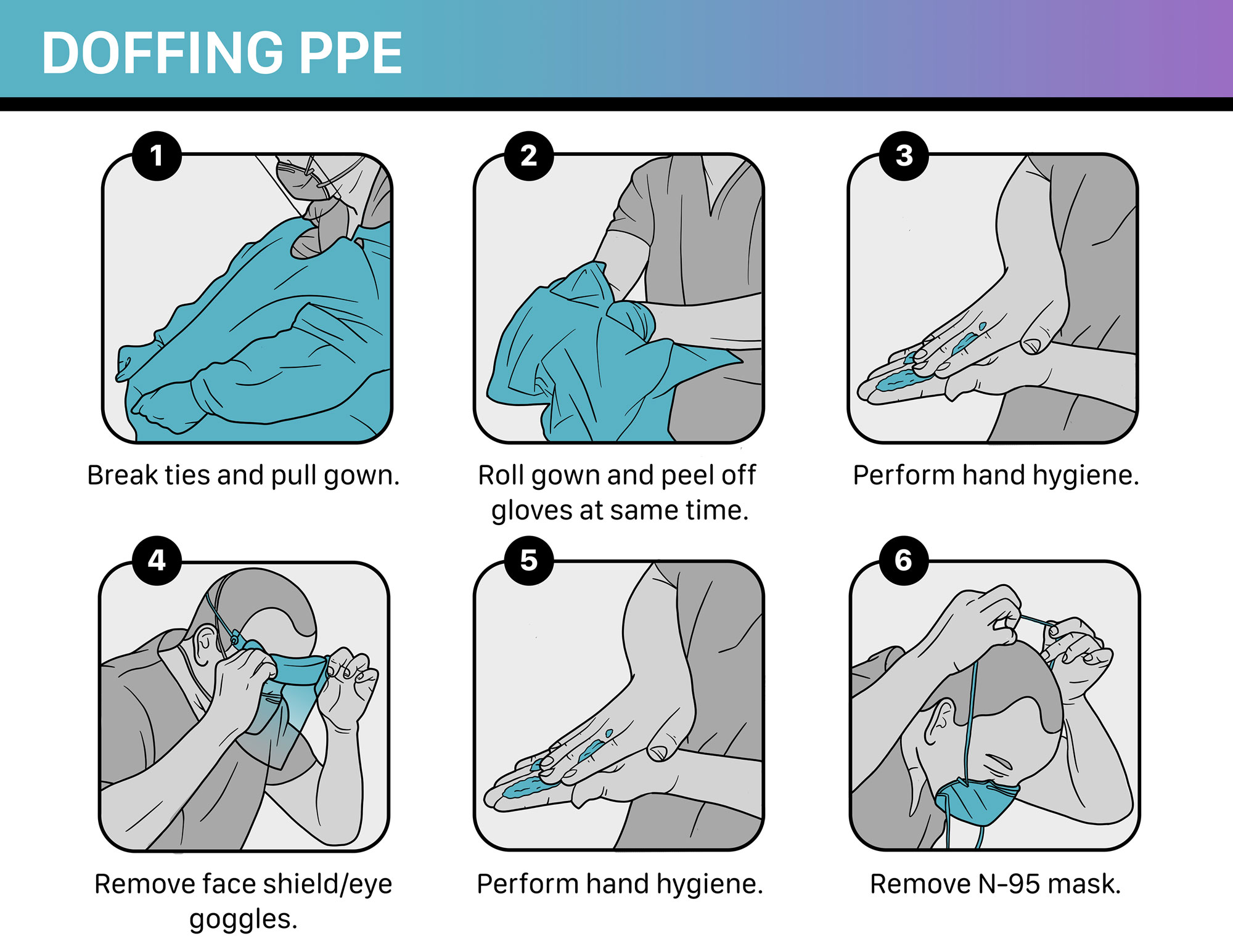What do you do when a failure to read the fine print could mean the difference between life and death? To Ryan Brewster—third-year med student by day, graphic designer by night—the solution is obvious. You harness the power of design to turn complicated and constantly changing medical guidelines on COVID-19 into easy-to-understand infographics. And you do it free of charge.
Brewster is the founder of COVID Creatives, a group of science-versed artists and graphic designers (including two other Stanford medical students) who have assembled, Avengers-style, to develop communications for health-care providers around the world. Their posters, charts and other materials fall into two categories: provider-facing instructions and patient-facing information.
For medical workers, an efficient visual summary of a 50-page document describing how to don personal protective equipment while minimizing contamination—or how to reuse disposable masks—helps them do their jobs while safeguarding their health. And for patients, who are often exposed to contradictory and confusing news sources, a straightforward explanation of practices like mask wearing and social distancing can lead to behavior changes that help protect their communities. Both doctor and patient materials are designed with minimal text in order to reach a polyglot population.
Brewster says that the high-stakes nature of the work makes it painstaking, but the COVID Creatives are fueled by their clients’ gratitude. “The adage that a picture is worth a thousand words couldn’t be more true here,” he says. “This is where design matters most.”



Melina Walling, ’20, is an editorial intern at Stanford. Email her at stanford.magazine@stanford.edu.



